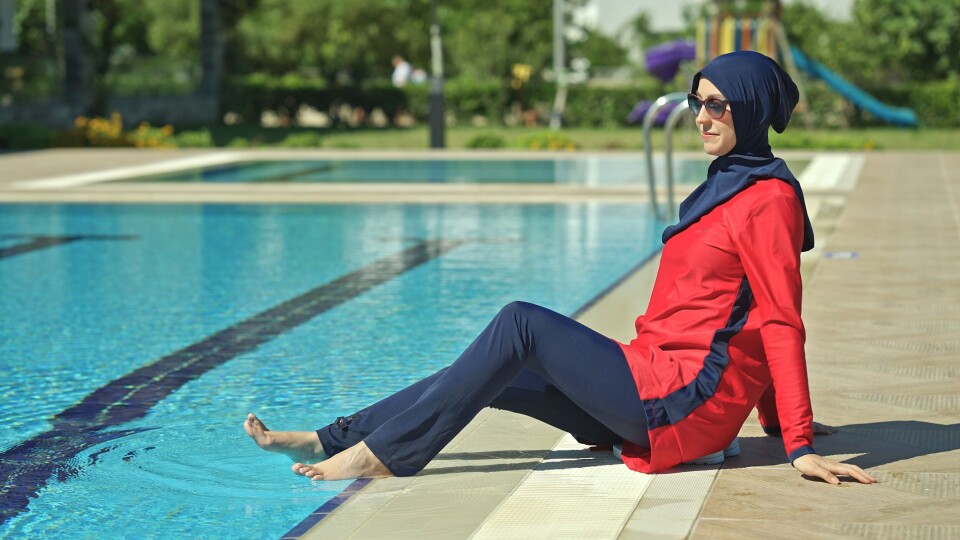-
Ski helmets should be compulsory in France
Two readers share their views on risk and danger on the slopes
-
We went to a French curry house but it didn't hit the spot
Columnist Samantha David laments the lack of decent meals in the style of the subcontinent
-
From 'romantic Paris' to dating apps: love is changing in France
Researcher Aziliz Kondracki explains the role that romance plays in modern France
Do you agree? France’s belief in laïcité (secularism) works
Does religious freedom, as long as you keep your beliefs to yourself, create a harmonious society?

It might not be inscribed on the facades of town halls, but it could well be the fourth motto of France.
After ‘liberty, equality, fraternity’ comes laïcité, which is often translated as ‘secularism’ but turns out to be slightly more complicated than that.
What it means is: “You are entitled to your own religion, or lack of it, but keep your beliefs to yourself.”
More specifically, it means that the state and religion must be kept separate because that is the fairest and least problematic arrangement.
International flak
France’s policy of laïcité gets a lot of flak internationally for its apparent intolerant attitude to religion, but this is usually because its critics do not understand it.
It is really the polar opposite of the US, where politicians have no shame (rather the opposite) in saying “God bless America.”
It also contrasts with Britain’s policy of multiculturalism, which champions religious expression.
It tries to ensure that all religions receive equal treatment and practises extreme tolerance and positive discrimination.
In France, the deal is that a belief in the supernatural, respect for the authority of a divine text, or speculation about ‘the hereafter’ is a private matter, and if people are allowed to go about advertising their faith, or canvassing new recruits in public, it only causes problems.
One rule for all
One rule for all keeps things clear.
What most people forget these days is that the principle of laïcité was first established in 1905 to prevent the Catholic church exerting too much influence over French society.
Its roots go back to the Revolution, when there was widespread opposition to all religion.
It took a century for the country to reach a compromise.
The progressive Third Republic (from 1870) adopted this approach in an attempt to quell the antisemitism witnessed in the Dreyfus Affair between 1894 and 1906.
The idea was that in a modern, rational country, religious affiliation should be treated as secondary to conforming to the tenets of national identity.
To be a French citizen was to seek things in common, not to exacerbate divisions.
That works well for anyone without a religion but, for believers, it has always seemed like an insensitive imposition on their rights.
Laïcité brings own problems
Laïcité might aim to create a more enlightened society, but brings its own problems if not handled with sympathy.
Its extreme implementation can provoke the opposite effect to what is intended. Religious communities can feel persecuted, causing them to retreat into ghettoes.
At the coalface of laïcité is education.
The law states that children in school must not wear symbols of their religion.
They learn that equality is the essence of French citizenship.
Teachers are the most visible representatives of the state in most communities and they take the brunt of criticism of laïcité.
If a teacher tells a Muslim girl to remove her hijab headscarf, is this not a direct challenge to the principle of individual liberty?
Some people say that too much fuss is being made about nothing. Should not people, children included, dress how they want?
Why should anyone see a head scarf as a threat?
Burkini debate
The issue is more acutely drawn into focus by the burkini, a swimsuit for women.
It covers as much skin as a wetsuit and swim cap and yet has sparked a controversy that has not yet been settled.
Should the law see the burkini as a violation of laïcité or not? Religion is not an easy thing for any society to deal with.
Multiculturalism and a free-for-all has its advantages and disadvantages. So has laïcité, which aims to make life straightforward, but in practice throws up many test cases.
It only works with full comprehension, and a lot of give and take on both sides.
Do you agree or disagree? Tell us via news@connexionfrance.com
Related articles
French mayor’s anger as court orders that Saint Michel statue must go
French court orders removal of Virgin Mary statue as it is religious
























